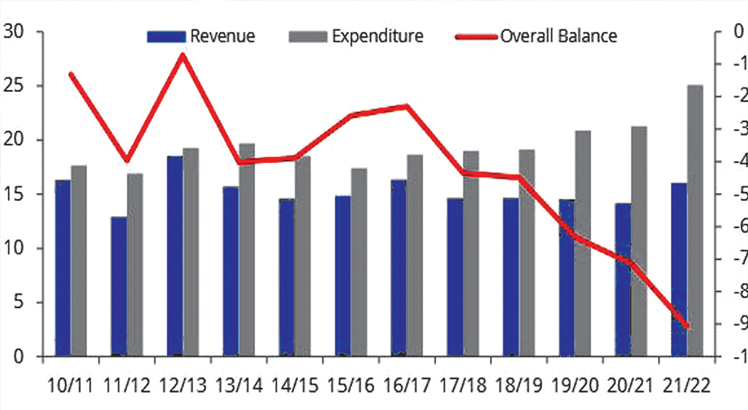With Treasury set to operationalise the Debt Retirement Fund in the 2022/23 fiscal year amid rising public debt, economists have cautioned government to exercise fiscal prudence to avoid abusing the fund.
In his State of the National Address two weeks ago, President Lazarus Chakwera also confirmed that the fund will now be operationalised in the forthcoming fiscal year.
The fund was initiated after a rise in the total public debt stock, which as at June 2021 stood at K5.5 trillion or 59 percent of the country’s rebased gross domestic
product (GDP).In an interview yesterday, Malawi University of Business and Applied Sciences associate professor of economics Betchani Tchereni said the fund is a specialised vehicle through which the country will ensure that the public is serviced.
He said: “It gives confidence to would-be financiers. It is important that we remain focused and I believe it will account for a percentage of revenue that we collect that will be channelled into the fund.
“We must be disciplined. We should not look at it as a reserve kitty for spending on other needs. When we establish the fund, we gain donor confidence, debt confidence and our credit worthiness improves.”
Economist Milward Tobias, who is director of Centre for
Research and Consultancy questioned the practicability of establishing the fund when the country is facing revenue mobilisation challenges.
He said retiring debt should start with taming borrowing for consumption, but only borrow to invest to enable the investments to support debt repayment.
Tobias said: “How practical is the fund now given the subdued revenue against skyrocketing expenditure.
“Electricity generation is less by about 130 megawatts, causing blackouts, companies are operating on less capacity. All this affects the budget, so where will we get the funds to build the Debt Retirement Fund?”
He said the country needs more resources than before, adding that the idea is good but implementation will be
affected by the economic environment.
“Some of the debt burden that we have stems from borrowing with good intention, but spending on wrong projects,” said Tobias.
He observed that domestic borrowing is the main burden as opposed to external borrowing, observing that in 2021/22 fiscal plan, out of about K299 billion for debt repayment, only K14 billion was for external repayment while the rest was domestic.
Ministry of Finance spokesperson Williams Banda was yet to respond to our questions.
However, Ministry of Finance earlier admitted that the country is on the verge of debt distress and requires urgent debt restructuring to create some fiscal space to avert a potential crisis.
It said debt to revenue ratio remains high, meaning that the country has a lot of debt against domestic revenue.
In its recent Malawi Economic Monitor, the World Bank warned Malawi Government to tread carefully on the establishment of a Debt Retirement Fund, saying proposed financing options could exert additional fiscal pressure and worsen the country’s public debt woes.
The bank warned that some financing modalities of the fund would burden consumers already under pressure from a myriad of levies and taxes.
Reads the report in part: “Some financing options such as a levy on fuel would put the financing cost on consumers who already face high levies on fuel.
“Other options such as using proceeds from tax revenue would reduce resources for budget implementation.”
The post Economists caution treasury on debt fund appeared first on The Nation Online.
 Moni Malawi
Moni Malawi 

